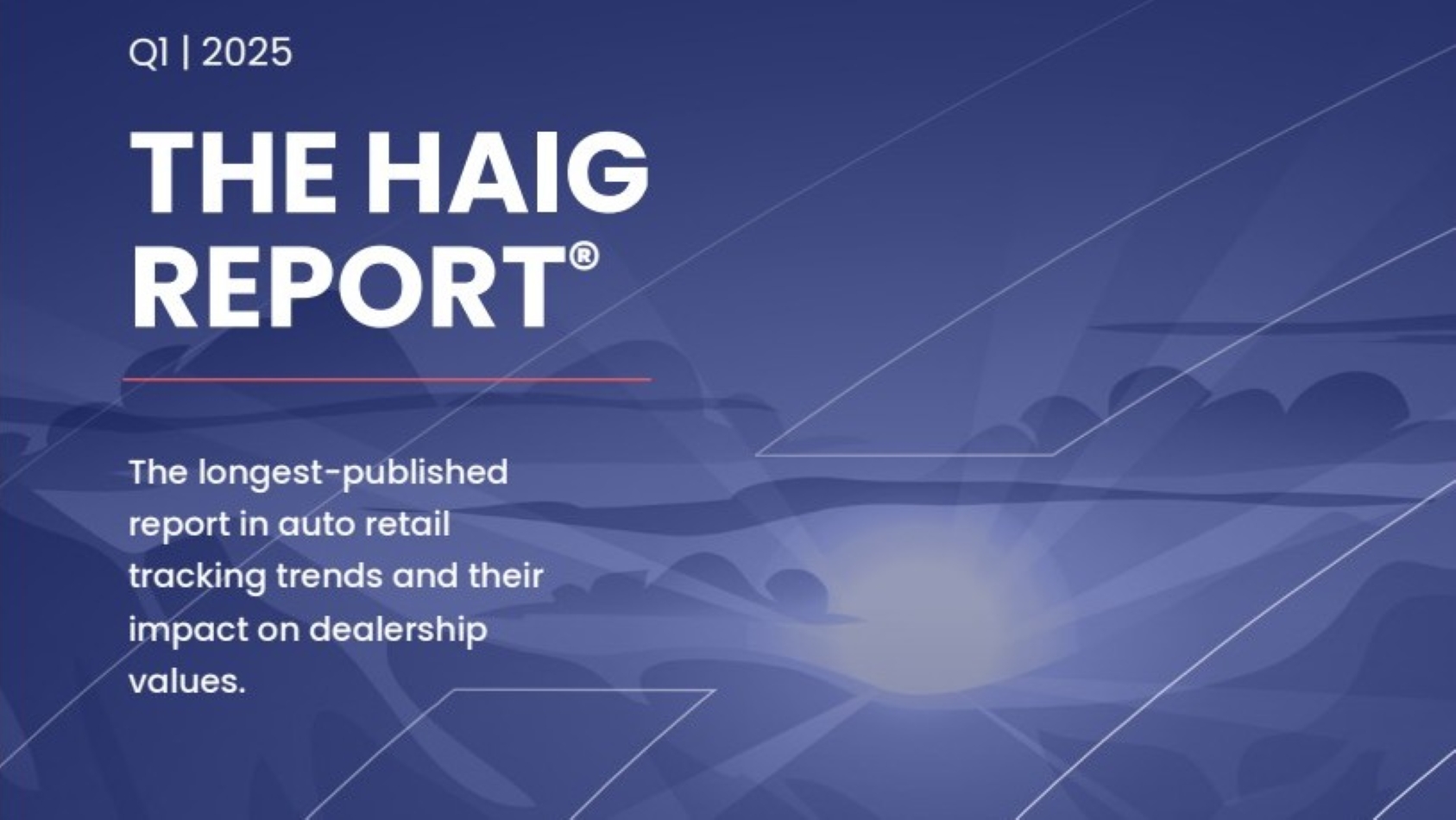Report shows slowest Q1 for dealership buy/sell market in 10 years

Image courtesy of Haig Partners.
By subscribing, you agree to receive communications from Auto Remarketing and our partners in accordance with our Privacy Policy. We may share your information with select partners and sponsors who may contact you about their products and services. You may unsubscribe at any time.
The first quarter of 2025 was the slowest Q1 for dealership buy/sell activity in at least 10 years, while dealership profits remained at a high level, according to the latest report from Haig Partners.
The Q1 2025 Haig Report showed just 68 rooftops changed hands, down 57% from Q1 2024 and the fewest since the report debuted in 2014.
Just four dealerships were acquired by public companies during the quarter, all by Lithia and Driveway and AutoNation, as public group spending on new additions fell 91% year-over-year.
That said, acquisitions are picking up in the second quarter, Haig Partners said, citing the pending close of major deals by publics such as Asbury’s massive purchase of the 33-dealership Herb Chambers group and Group 1’s acquisitions of Mercedes-Benz of Austin and Scanlon Lexus and its own transaction pipeline showing increased activity from private buyers.
The report projects dealership sales to increase throughout 2025 but to finish the year with fewer transactions than 2024.
The report also showed the average publicly owned dealership generating $1 million in pre-tax income in Q1, down 4% year-over-year. For the 12 months from Q1 2024 through Q1 2025, the average was $3.9 million, just a 1% decline year-over-year.
Subscribe to Auto Remarketing to stay informed and stay ahead.
By subscribing, you agree to receive communications from Auto Remarketing and our partners in accordance with our Privacy Policy. We may share your information with select partners and sponsors who may contact you about their products and services. You may unsubscribe at any time.
At current levels, the report said, the average auto dealership is making about twice the amount of profit as before the pandemic — but Haig Partners president Alan Haig warned tariffs could reduce profits later this year.
“The auto retail industry is in a confusing place,” he said. “On the one hand, auto sales are up and profits are strong. On the other hand, newly imposed tariffs have spooked many OEMs and consumer confidence has plunged to near record lows.
“There is some general faith that things will work out — this is just the way Trump negotiates. But it seems likely there will be some lingering tariffs that will cause pain to many for some time.”
Haig Partners’ analysis said the uncertainty surrounding tariffs is having a “dampening effect” on the market, slowing transactions as some sellers wait to enter the market until there is more clarity.
“In terms of the buy/sell market, things are also a little confused,” Alan Haig said. “We have never seen more demand for dealerships, as almost every day we are contacted by an existing or want-to-be dealer expressing interest in buying dealerships. But so far in 2025 the number of dealerships sold has plunged by 64% from Q1 2024.”
So far, though, none of that is affecting dealership values. The report estimated the average blue sky value of a publicly owned dealership in Q1 at $20.7 million, a decline of only 1% from the end of 2024. And while that’s a 15% drop from 2023, blue sky values are about double what they were before the pandemic, thanks to higher earnings and strong demand from buyers.
“We have seen no diminution of dealership values so far from tariffs,” Haig said. “In our Q4 2024 report we made eight changes to blue sky multiples to reflect changing pricing for dealerships. In this report, we make none.”
What happens in the near future, though, is up for grabs, the report said, depending on all sorts of factors including whether OEMs, dealers or customers absorb the costs of the tariffs, will absorb the higher costs and the results of automakers’ negotiations with the Trump administration.
If the current tariffs remain in place, the report said, customers will push back against paying more, but there is still significant pent-up demand from six years of reduced new-car sales.
“At the moment, auto dealers are feeling pretty confident,” Haig said. “They have seen the auto retail business model endure all kinds of shocks and emerge highly profitable. Our friends tell us they believe there will be a period of a few months to a year when the tariffs bite and profits may suffer. And then they believe there will be an extended period of economic growth that will lift consumer confidence, [new-car] sales will bounce back above 17 million units and dealership profits will start growing again.
“We believe one reason auto dealers are calm is because they are making investments based upon a very long timeline — 20 years or more. They are less concerned about short-term economic issues and more concerned with choosing the right franchises, retaining the best talent and treating their customers well. If they perform in the areas they can control, dealers are confident the next few decades in auto retail will be as successful as the past few.”
The full report can be downloaded here.


